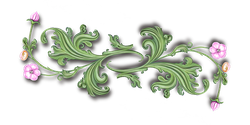The human head - nose and mouth - exercise I / La cabeza humana - nariz y boca - ejercicio I (#club100)

Hi friends!
In addition, there are other aspects that make it even more interesting, the mouth contains the teeth and the tongue inside, added to the fact that we can change its shape to laugh, smile, cry, scream, show pain, speak, etc.
To put into practice what we already know about the human head, we will draw it with these two features, the nose and the mouth in different positions before continuing with the ears and the eyes.
We can sketch the ear without details, just to get used to positioning it correctly.
La boca es un rasgo muy interesante de nuestro rostro debido a su poder expresivo, también podemos inferir el sexo, la raza y la edad de una persona al observar este rasgo en particular.
Además, hay otros aspectos que la hacen aún más interesante, la boca contiene los dientes y la lengua en su interior, sumado a que podemos cambiar su forma para reír, sonreír, llorar, gritar, mostrar dolor, hablar, etc.
Para poner en práctica lo que ya sabemos sobre la cabeza humana, la dibujaremos con estos dos rasgos, la nariz y la boca en diferentes posiciones antes de continuar con las orejas y los ojos.
Podemos esbozar la oreja sin detalles, solo para acostumbrarnos a colocarla correctamente.
Start by drawing the basic helplines as we have learned in previous lessons.
Comienza dibujando las líneas de ayuda básicas como hemos aprendido en lecciones anteriores.

Pay attention to the perspective in both senses.
Presta atención a la perspectiva en ambos sentidos.


Imagine the volume when drawing to place the nose and mouth. Also, keep in mind the orbit of the eyes.
Imagina el volumen a la hora de dibujar para colocar la nariz y la boca. Además, ten en cuenta la órbita de los ojos.



At this stage, if you are already confident with drawing the head, it is time to pay attention to other features that characterize it.
We have the nasal bone, the temples, the cheekbones, the chin, and the angle of the lower jaw. Each of these characteristics contributes to defining it.
En esta etapa, si ya te sientes seguro al dibujar el rostro, es hora de prestar atención a otras características que lo caracterizan.
Tenemos el hueso nasal, las sienes, los pómulos, el mentón y el ángulo de la mandíbula inferior. Cada una de estas características contribuye a definirlo.


I suggest you to read:
Te sugiero que leas:
https://steemit.com/hive-185836/@jorgevandeperre/the-head-on-3-4-view-la-cabeza-en-vista-3-4-club100




I wish you a very nice day and good exercise!
Te deseo un gran día y muy buenos ejercicios!
Time
by J.Van de Perre - video demo, painting process

Also, thanks to @xpilar for making these initiatives possible with their great support.

Congratulations, your post has been upvoted by @scilwa, which is a curating account for @R2cornell's Discord Community. We can also be found on our hive community & peakd as well as on my Discord Server
Felicitaciones, su publication ha sido votado por @scilwa. También puedo ser encontrado en nuestra comunidad de colmena y Peakd así como en mi servidor de discordia
Thank you very much for your support, I really appreciate it.
Your post has been supported by @naka05 from team 2 of the Community Curation Program, at 50%. We invite you to continue sharing quality content on the platform, and continue to enjoy support, and also a likely spot in our weekly top 7.
Voting date:
Thank you SC05 and @naka05 for your great support, I really appreciate it!
Wonderful work
Thank you! I'm happy you liked it.
That is nicely presented, I can remember the vanishing points again. Since I saw your tutorial and I look at people I can see the lines, that are representing the fascial bones. The nature is so clever and mathematic is really the foundation of everything.
Hi @stef1, I'm happy to know that. It is a wonderful experience to perceive in reality what should be represented on drawing paper, even more so when it comes to the human face.
Perspective is a matter that is in us, in the way we perceive reality. Consequently, everything we see is affected by our own decoding. So we must not forget the perspective, on the contrary, we must try to see it consciously.